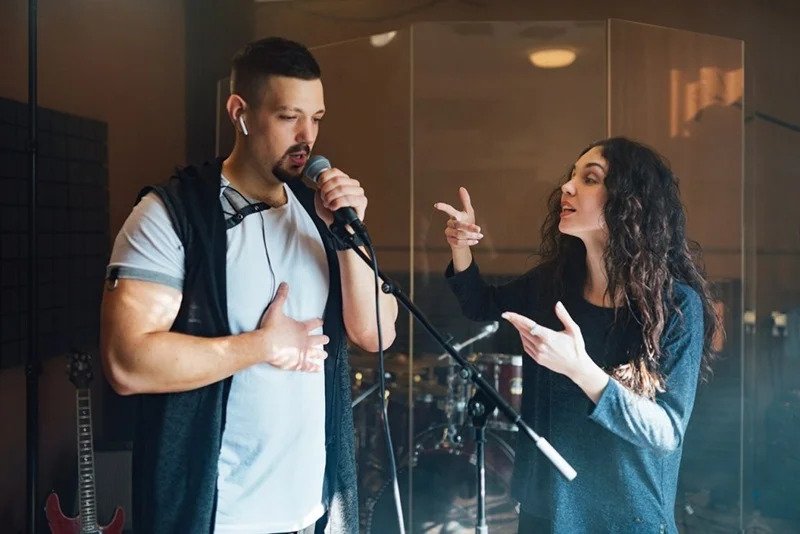One of the most important things in a singer’s life is their teacher. Your teacher will not only teach you the best technique to ensure the well-being of your voice and allow you to create a fantastic sound, but they will also guide you through the world of singing.
Not every teacher is right for every student. A skilled choral tenor might not be the best choice for a young mezzo interested in opera. A student interested in jazz will probably not want to choose a teacher with a long career in oratorio. When selecting your teacher, follow these guidelines to find the best teacher for you.
1. Think About Your Goals
The first thing to consider is your personal goals. What do you want from your singing lessons? Singers usually fall into three categories.
Amateur
Some singers just want to have fun and reap the benefits of singing in a choir. Amateur singers aren’t looking to audition or perfect their technique and just want to learn more about their new hobby. If this is you, try looking for teachers who work with amateur choirs.
Classical
Many singers gravitate to the world of opera and classical singing. If you find yourself singing O mio babbino in the shower, this might be you. Look for a teacher that has stage experience and is knowledgeable about the bel canto technique. Teachers with current opera work may also have connections to others in the opera world, and when you’re ready, they may recommend you to their friends.
It can also be beneficial for you to find a teacher with a similar voice. Men’s voices differ significantly from women’s, but many teachers have experience working with students of all voice types.
If you’re interested in professional choral singing, look for a teacher with experience in that field. Choral singing can require different techniques than solo singing.
Broadway/Pop
If you’re more into belting, don’t work with an operatic singer. Broadway and pop singing often involve multiple shows day after day, and it’s essential that your technique is secure to protect your vocal chords. Find a teacher with experience in pop or broadway singing with knowledge of how to sing safely.
2. Research Your Options
Once you determined what kind of teacher you need, research the options. Google and YouTube them. Do you like the way they sing? If they’re teachers at a music college, have their students found success? Do they mostly teach small children?
3. Do A Trial Lesson
Finally, before committing to working with a teacher, you should always schedule a trial lesson. Bring your favorite piece, and don’t be afraid to ask questions. Record your lessons so you can go back and review them later.
After your lesson, write down your thoughts about it. Were they supportive? Overly critical? Did they teach you anything? Did your piece improve?
4. Think About Price and Location
After your trial lessons, you’ll have an idea of who you worked with best. If you liked more than one of the teachers, base your decision on their hourly price and where they teach.
- Why Not Learn Online?
With the pandemic still not going away and face to face lessons not always being an option, it’s never been easier to learn online. There are currently some awesome and pioneering providers like 30 Day Singer which has been around a few years now. You can learn more about them from reviews you can find online.
You Can Always Change Your Mind
Sometimes, we change our goals or simply outgrow our teacher. If you ever feel like your teacher isn’t helping you, go through this process again to find someone you click with better. Don’t be afraid to advocate for yourself. Your voice is a precious gift, and you deserve a teacher who will take care of it.

